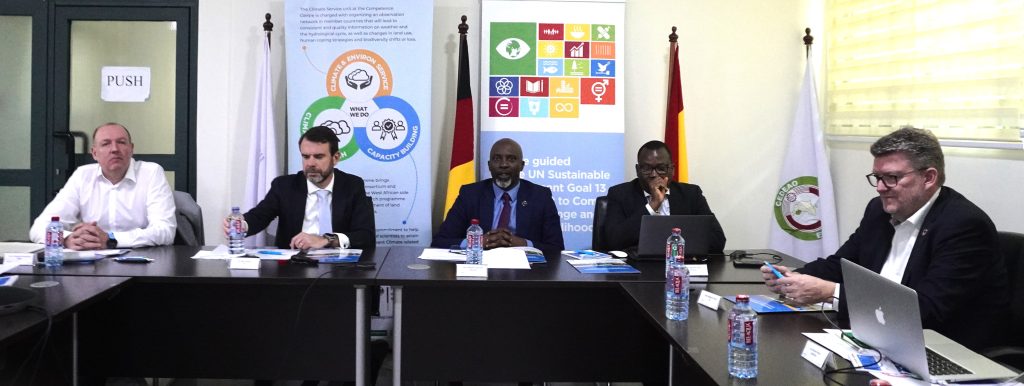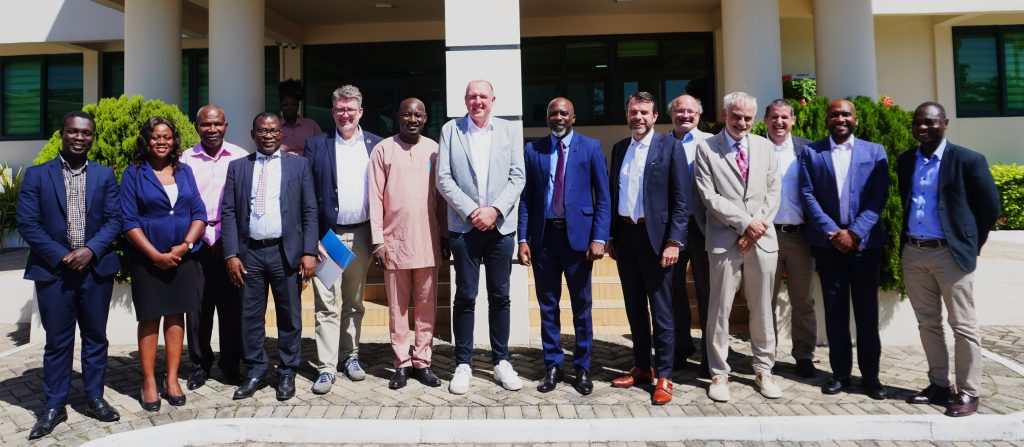
The West African Science Service Centre on Climate Change and Adapted Land Use (WASCAL) hosted a delegation from the Forschungszentrum Jülich (FZJ) at its headquarters in Accra, to agree and strengthen partnership between West Africa and Germany with the aim of leveraging knowledge, expertise, and resources to face Climate Change issues.
Attention was particularly given to the role of Renewable Energy and Green Hydrogen technologies in the global energy transition and the achievement of the net zero target. It is also to strengthen existing ties with WASCAL and ECOWAS sub-region to build strong capacity, develop research and innovation, implement pilot demonstrative projects, and to develop business models in the field of Green Hydrogen, as well as create avenues to pass knowledge results to end users.
In his welcome address, the Interim Executive Director of WASCAL, Prof. Kehinde Ogunjobi, emphasized the significance of the Julich team’s visit as an opportunity to share knowledge and resources. He underscored the mutual commitment to working together to address the multifaceted challenges posed by Climate Change in West Africa. The primary focus of this collaboration is to improve livelihoods, aligned with WASCAL’s vision and mission” he said.
Dr. Peter Jansens, the Governing Board Member of FZJ in his opening remark stated that, “the team’s aim is to identify African partners for the demonstration of cutting-edge technologies in the field of research. This joint effort signifies a commitment to sustainable development and a shared vision for a resilient and climate-resilient in West Africa.”
Dr. Christoph Rövekamp, Head of the Division for Energy and Hydrogen Technologies at the German Federal Ministry of Education and Research (BMBF), expressed appreciation for the longstanding ties between WASCAL, the Julich team, and BMBF. He highlighted the potential benefits of this collaboration and expressed hope that it would lead to the integration of new partnerships for sustainable development.
The collaboration between WASCAL and FZJ is expected to pave the way for innovative research initiatives and capacity-building programmes in Climate Change and Renewable Energy, to pass knowledge results to the end users in West Africa. The goal is to create a healthier environment and foster economically vibrant communities. The partnership will facilitate the exchange of ideas and technologies to effectively address the impact of Climate Change on the West African region.



